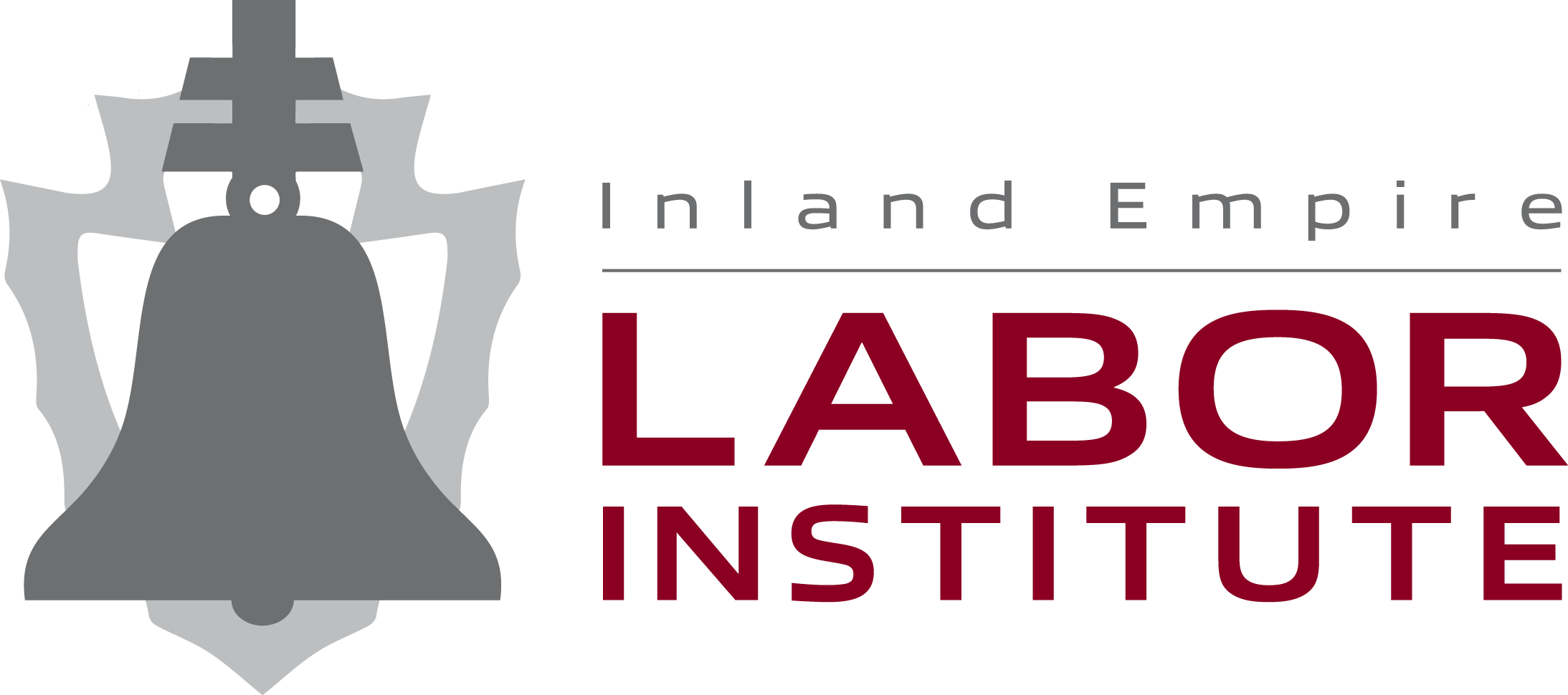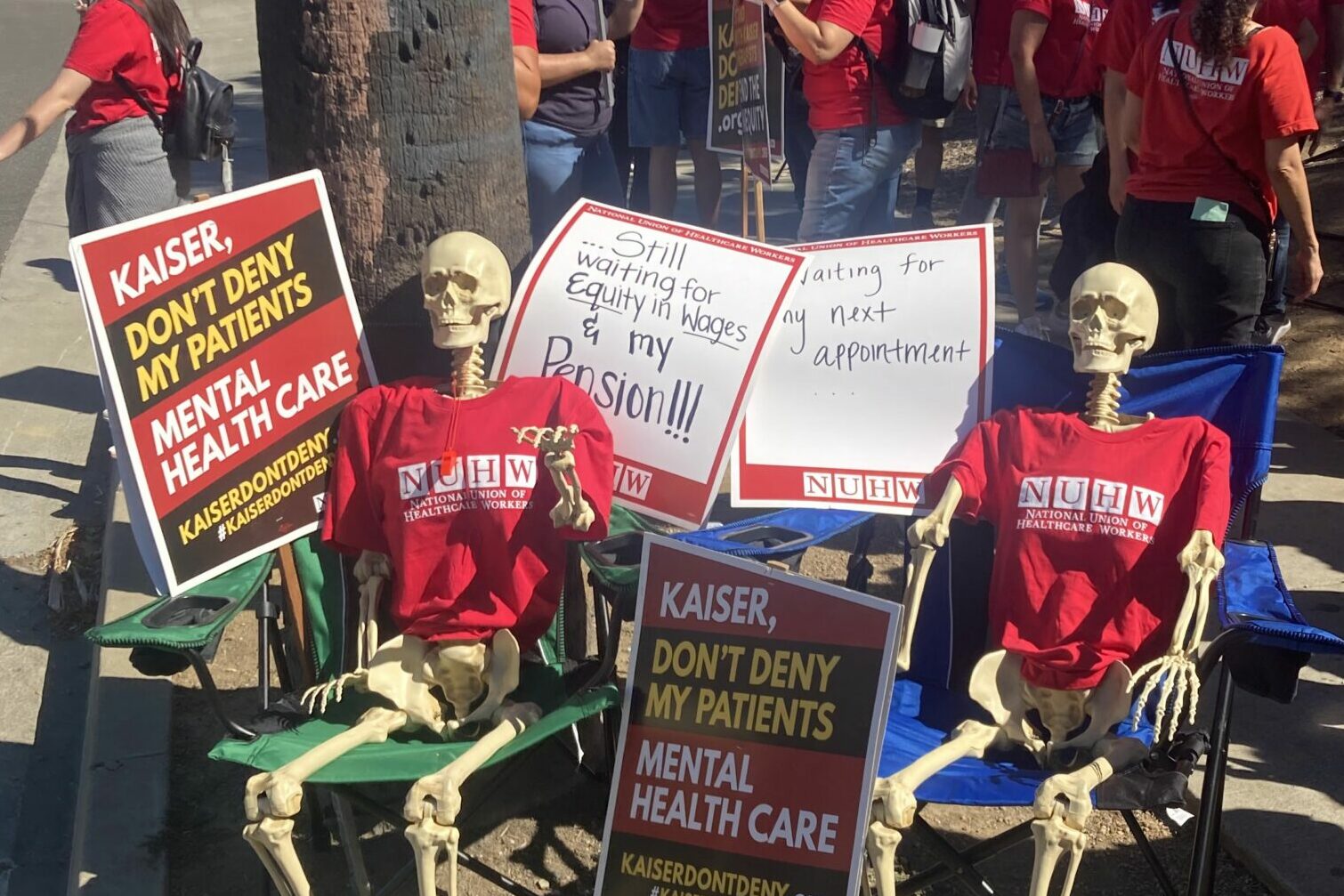By Jacob Jakubowski
With the call for climate justice and a just transition rising, one thing that must be made clear is the vital role that care workers have in both our society, and the environment. Care workers are those who work in the caregiving, healthcare, and education sectors. They have a lower carbon footprint than most other workers, and their work involves the direct care and improvement of the lives of others, including other workers. For these reasons, it is vital we value and prioritize the needs of all care workers. This includes the now striking union members within the National Union of Healthcare Workers, who are at the forefront of some of the most important work towards a better future.
Since October 21st, 2024, Kaiser Behavioral Health workers have been striking all across Southern California ranging from the Inland Empire all the way to San Diego, citing multiple critical issues that have boiled over with the recent expiration of their contract on September 30th. They strike now to attempt to negotiate a more fair and equitable contract that will last them for the next three years.
Reasons for the strike include a consistent refusal from Kaiser administration to supply their Behavioral Health, with equal pay when compared to their sister departments, refusal to grant fair and equitable pensions, and refusal to allow Kaiser Behavioral Health workers to have more time to care for patients outside of scheduled therapy sessions. This time is vital to charting, making calls to patients, to process referrals, and consult about a myriad of patient related issues.
The collective bargaining unit they represent themselves as consists of an array of different coordinating departments that all share the same wants and demands. They are a collective of Behavioral Health Workers, Psychiatry Workers, Home Health Workers, Social Medicine Workers, and Addiction Medicine all under the banner of the National Union of Healthcare Workers. All departments that share the similar goal of supplying their community and vulnerable populations with excellent care under the general name of Kaiser Psych Social.
Interviews done on October 22nd within their Riverside picket line reveal their desire to have these demands met not just so they can support themselves, but so they can support their patients and community.
“They’re valuing quantity of patients over quality of care and that’s not acceptable,” said Jessica, a longtime member of both the National Union of Healthcare Workers and a longstanding Behavioral Care worker. During our interview, Jessica revealed the daunting situation the Behavioral Health workers are currently facing: unstable wages, unstable hours to work with patients outside of immediate appointments, and this same unstable environment that has perpetuated high turnover rate and extreme burnout.
“I just hope Kaiser understands why we’re out here fighting, it’s about patient care, it’s not just about pensions, you know not just the compensation. We’re really out here for our patients, we want that quality care. So we really hope that Kaiser listens to us, and changes that broken system,” Jessica said.
This reveals a brief look into the reality of the strike: This isn’t just about fairness or equality for workers, this is about doing what’s right for their patients, and their community. In fact, the mental health crisis in Southern California has only continued to grow, with the needs of hard working, working class people such as those in the construction industry only growing. The rate of suicide in construction is more than four times higher than the general population. As their allies in labor, behavioral health workers need every resource possible to help.
As strikes continue throughout all of southern California, Kaiser has responded briefly with a statement of their own. Kaiser’s bargaining is viewed by strikers as lukewarm at best, granting no real offer of a pension or restoring their previously lost pensions in 2014, while continuing to supply excellent pensions to other departments within Kaiser.
Kaiser has claimed they have made fair offers, but they have begun by only offering 6 hours of weekly preparation time for Behavioral Health workers to care for clients between appointments through charting, phone calls, referrals, and consulting, the previous time being 4 hours. Additionally, only a small percentage increase in wages over four years was offered. Kaiser’s administration has shown its unwillingness unanimously to support their community and patients, by supporting their workers who are on the front lines.
As shortages of Behavioral Health workers now are exacerbated by the strike, and there are reports of tens of thousands of appointments now being cancelled due to Kaiser’s inaction, the ball is now in Kaiser and their leadership’s court to show their communities that they care for the people they are obligated to serve. The only way Kaiser can do this is by showing equity and respect to the care workers in green, community-driven jobs such as behavioral health workers.
Next week, the Inland Empire Labor Institute will highlight childcare, another aspect of the care economy that is critical to working families and the overall health of our region, with a panel discussion on “Childcare and Work: A Crisis In The Making.” Join us on Wednesday, December 11th, at 1-3 PM at KVCR on the San Bernardino Valley College campus, 701 S Mt Vernon Ave, San Bernardino, CA 92410. Space is limited; please register in advance.
Jacob Jakubowski is an intern at the Inland Empire Labor Institute for 2024-25 through Riverside City College’s Community Action Leadership Academy.

